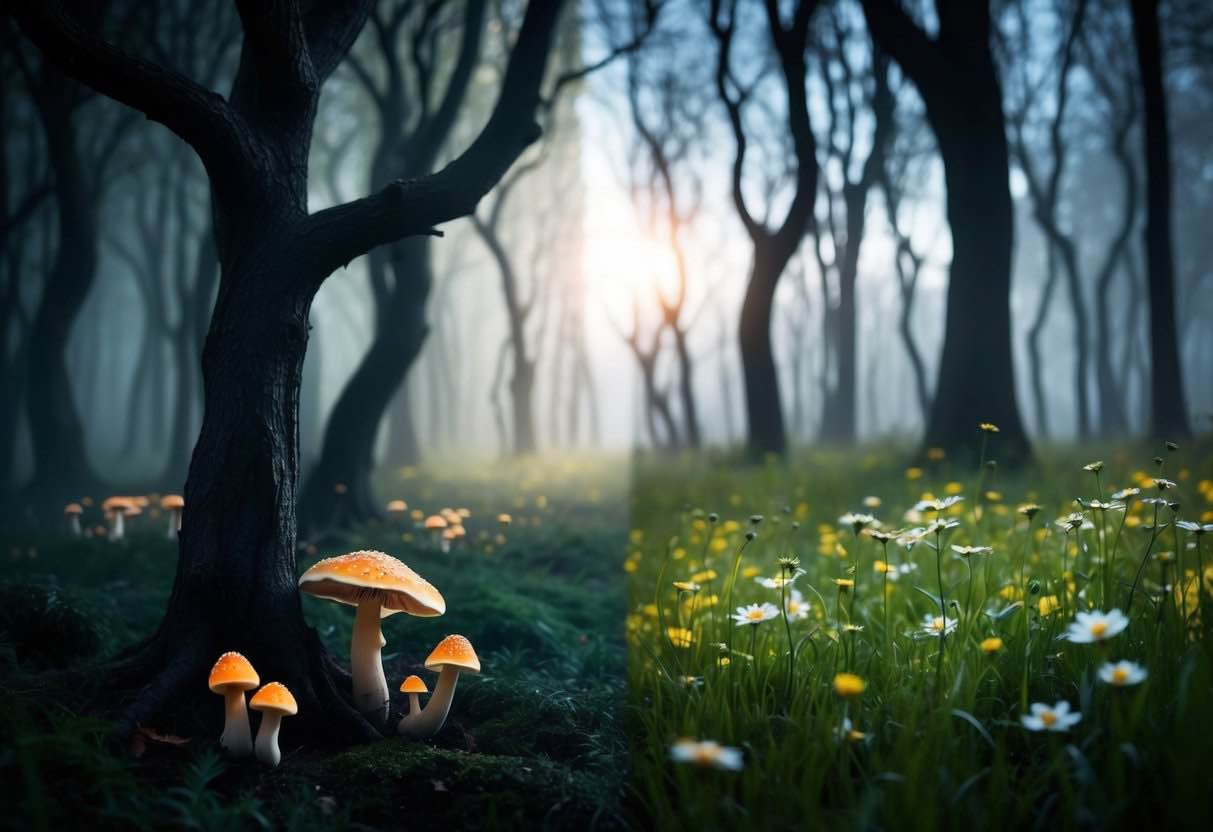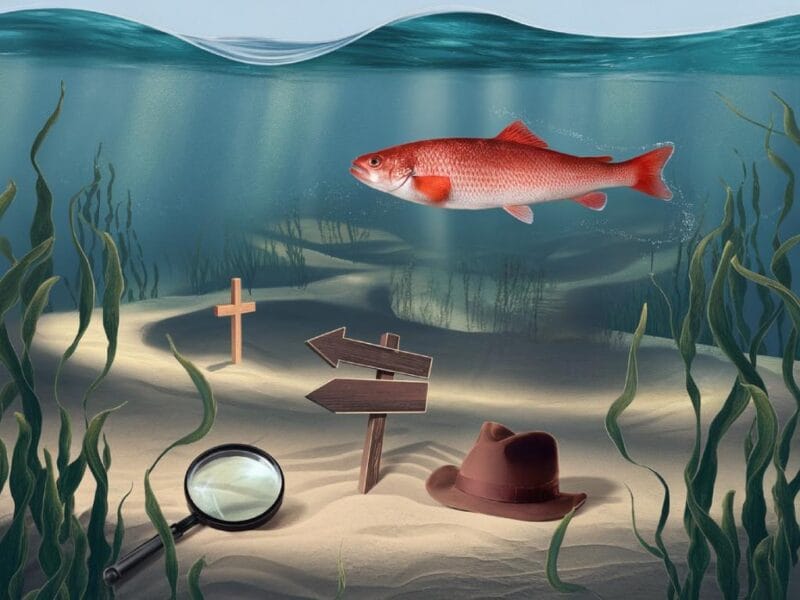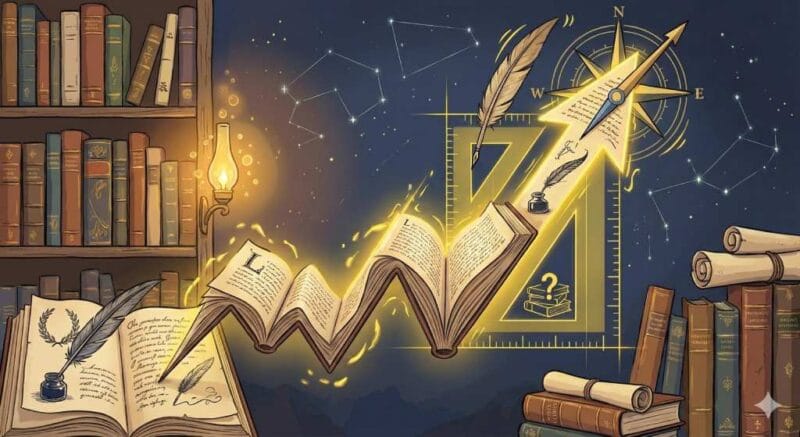- Genre fiction, including science fiction, romance, and mystery, focuses on plot-driven narratives and clear resolutions, appealing to those who enjoy familiar structures and escapism.
- Literary fiction emphasizes character development and intricate themes, offering a realistic, introspective perspective on human experiences, attracting readers seeking deeper emotional and psychological engagement.
- Genre Fiction:
– Plot-driven narratives
– Specific tropes and conventions
– Examples: J.K. Rowling’s Harry Potter, Agatha Christie’s Hercule Poirot series, Stephen King’s It - Literary Fiction:
– Character-focused narratives
– Complex themes and stylistic writing
– Examples: F. Scott Fitzgerald’s The Great Gatsby, Harper Lee’s To Kill a Mockingbird - Market Trends:
– Genre fiction dominates due to broad appeal and multimedia franchises.
– Literary fiction often garners critical acclaim and prestigious awards. - Reader Experience:
– Genre fiction offers structured plots and emotional satisfaction.
– Literary fiction provides deep emotional connections and thought-provoking themes. - Cultural Influence:
– Genre fiction reflects and reinforces popular culture.
– Literary fiction challenges established traditions and broadens worldviews. - Cross-Pollination:
– Hybrid forms blend elements from both genres, creating innovative narratives.
– Growing acceptance and recognition of the artistic value in cross-genre works.
Both readers and writers are frequently captivated by the debate on genre fiction vs literary fiction. Genre fiction is defined by works that follow specific themes and motifs, such as science fiction, romance, or mystery, and that prioritize plot-driven narratives and unambiguous resolutions. Conversely, literary fiction emphasizes character development, intricate themes, and frequently offers a more realistic, introspective perspective on human experiences.
Readers may find themselves drawn to genre fiction for its familiar structures and escapism, enjoying the thrill of a gripping plot or the comfort of a conventional ending. On the other hand, literary fiction appeals to those seeking deeper emotional and psychological engagement, exploring profound themes through nuanced characters.

Understanding the differences between these two types of fiction can enhance one’s appreciation of both. Whether you savor the intricacies of human relationships in literary fiction or the excitement of a suspenseful genre story, each offers unique value and insight into the human condition.
Defining Genre Fiction
Genre fiction, also known as commercial fiction, focuses on plot-driven narratives and often adheres to specific tropes and conventions. These works are crafted to entertain and engage a broad audience, encompassing categories like romance, mystery, fantasy, and horror.
Characteristics of Genre Fiction
Genre fiction is typified by its adherence to recognizable tropes and structures.
Each genre sets its own rules: fantasy includes elements of magic; science fiction explores futuristic themes; horror aims to evoke fear. This predictability doesn’t deter readers; instead, it provides a familiar framework to explore new stories.
Character development in genre fiction supports the plot. Protagonists often face clear challenges to achieve specific goals, emphasizing action over introspection. This makes genre fiction engaging and accessible.
Notable examples of genre fiction include J.K. Rowling’s Harry Potter series (fantasy), Agatha Christie’s Hercule Poirot mysteries (mystery), and Stephen King’s It (horror).
Popularity and Market Trends
Genre fiction dominates the market due to its broad appeal. Romance, sci-fi, mystery, and fantasy books consistently top bestseller lists, driven by their accessible and engaging plots.
These genres often form the basis for multimedia franchises, including movies, TV series, and games. This media presence further boosts their popularity.
Market trends indicate a growing acceptance of genre blending, where elements from multiple genres combine to create unique narratives. Crossovers between fantasy and romance or mystery and historical fiction attract varied audiences.
The commercial success of genre fiction is bolstered by large, dedicated fanbases and active online communities that drive ongoing interest and sales. The adaptability and appeal of genre fiction ensure its continual prominence in the literary market.
Understanding Literary Fiction
Literary fiction distinguishes itself through its emphasis on character development and thematic depth, often explored through complex narratives and stylistic writing.
Characteristics of Literary Fiction
Literary fiction is often characterized by its focus on characters rather than plots. Authors invest deeply in exploring human conditions and motivations, making their characters’ inner lives as compelling as the external events taking place around them. This genre typically features intricate prose, which can include metaphorical language, symbolic elements, and other literary techniques.
Examples of literary fiction include works like The Great Gatsby (1925) by F. Scott Fitzgerald and To Kill a Mockingbird (1960) by Harper Lee. These novels are celebrated for their thought-provoking themes and nuanced portrayals of characters.
Literary Recognition and Awards
Literary fiction often receives significant recognition through awards and critical acclaim. Prestigious awards such as the Pulitzer Prize, Man Booker Prize, and National Book Award frequently highlight works in this genre.
These accolades not only celebrate the artistic quality of the writing but also underscore the story’s social or cultural significance. Many award-winning novels, like Beloved (1987) by Toni Morrison and The Road (2006) by Cormac McCarthy, have become classics precisely because of the themes they explore and the unique ways in which they are written.
Comparative Analysis
When considering genre fiction and literary fiction, key distinctions can be seen in their plot structures, thematic depth, character development, and language styles. Understanding the genre fiction vs literary fiction debate could potentially enhance readers’ appreciation of both categories of literature.
Plot and Narration
Genre fiction typically utilizes a plot-driven approach, structuring their stories around established tropes and conventions unique to genres like mystery, fantasy, or romance. This clear framework helps maintain reader interest through suspense, adventure, or emotional highs.
In contrast, literary fiction, which often favors a more character-driven narrative, has plots that take a backseat to the detailed exploration of characters’ development and interrelationships. This form often eschews traditional narrative arcs, opting instead for more experimental storytelling techniques.
Thematic Depth
Genre fiction tends to focus on universal themes that are readily accessible. Truths about good versus evil, love conquering all, and the triumph of the human spirit are common elements. These themes are often straightforward and are meant to provide clear moral or emotional resolution.
Literary fiction dives deeper into complex and often ambiguous themes. Questions of identity, existentialism, and societal critique are prevalent. The themes provoke thought and discussion, often leaving readers with more questions than answers. They explore the nuances of human experience and frequently avoid definitive conclusions.
Character Development
Characters in genre fiction often fit within recognizable archetypes. The hero, the villain, the love interest—these roles help drive the plot forward. While characters can be well developed, they often operate within the constraints of genre expectations.
Literary fiction, on the other hand, places a significant emphasis on multidimensional character development. Characters are not confined to archetypes and are explored in greater psychological depth. Their growth and changes may be subtle and gradual, mirroring real-life complexities.
Language and Style
Language in genre fiction is typically straightforward and accessible. The primary goal is clarity and engagement, making the story easy to follow. The pace is typically brisk to maintain reader interest, with less emphasis on elaborate prose.
Literary fiction embraces a more artistic use of language. The prose can be intricate and layered, focusing on aesthetic qualities and deeper symbolism. Literary techniques such as stream of consciousness, unreliable narrators, and rich descriptions are commonly employed to enrich the text.
While genre fiction and literary fiction offer different experiences, each has its own unique strengths and appeal. Their differences in plot, themes, character development, and language style create a variety of options for readers, as well as for writers who want to be known for either one.
Reader Experience

Both genre fiction and literary fiction offer unique experiences, affecting how readers engage with the story and their emotional responses.
Engagement Factors
In genre fiction, structured plotlines often drive reader engagement. Because the narratives follow specific tropes and conventions, readers find them familiar and exciting. Whether it’s the magic in fantasy or the suspense in mystery, each genre has elements that captivate its intended audience.
Literary fiction, on the other hand, captures attention because of the complexities of character development and realistic narrative arcs. The reader forms a deep emotional connection with the characters’ motivations. There’s often a focus on prose and thematic depth, making the reader ponder broader human experiences compared to genre fiction.
Emotional Impact
Genre fiction often aims to evoke a range of emotions, from thrill to joy. The outcome is a sense of satisfaction as the plot resolves logically, meeting expectations set by the genre. This predictability and resolution often provide a comforting experience for the reader.
Literary fiction, by focusing on inner lives and struggles, tends to evoke deeper and sometimes conflicting emotions. Readers might feel empathy, sorrow, or contemplation. The emotional journey isn’t always neat or resolved, leaving a lasting impact that encourages reflection on a personal level and sometimes delving into more intricate societal issues.
Influences on Culture and Society
Both genre fiction and literary fiction shape social conventions, behaviors, and perspectives in different ways. Genre fiction tends to reflect and reinforce popular culture, while literary fiction often challenges and deepens our understanding of society’s complexities.
Influence of Genre Fiction
Genre fiction often provides an accessible platform for exploring societal issues. For example, science fiction frequently speculates on future technologies and their impacts, influencing public expectations and policy discussions. Fantasy frequently revisits historical and mythological themes, fostering a sense of cultural heritage and values. Mystery and crime novels shed light on the justice system and can alter public perceptions of law enforcement. The cultural zeitgeist collectively shapes these genres, reinforcing and sometimes questioning societal values and norms.
Impact of Literary Fiction
Literary fiction, with its emphasis on complex characters and social realism, encourages readers to think deeply about different perspectives and life experiences. Studies indicate that reading literary fiction increases attributional complexity and empathy, which can lead to a more nuanced understanding of human behavior and social contexts. Academic and social science research often uses this genre to illustrate psychological, sociological, and historical points. By presenting diverse narratives, literary fiction broadens the reader’s worldview and challenges preconceptions, often serving as a catalyst for social change and discourse on human rights, equity, and justice.
Cross-Pollination Between Genres
Cross-pollination in fiction is leading to dynamic storytelling. Authors blend elements from both genre and literary fiction to create new hybrid forms, affecting how audiences perceive their work.
Hybrid Forms
Hybrid forms combine elements from multiple genres to create innovative narratives. For instance, literary novels may include elements typical of science fiction, such as advanced technology or speculative worlds.
Similarly, mysteries may incorporate the deep character studies common in literary fiction. This blending often results in richer, more complex stories. Authors like Kazuo Ishiguro and Margaret Atwood have successfully used this approach, offering readers unique experiences that don’t fit neatly into conventional categories.
Benefits:
- Rich storytelling: bringing together plot-driven and character-driven elements
- Broader appeal: attracting diverse readerships
Shifts in Audience Perception
Audience perception of blended genres is evolving. Previously, readers and critics strictly categorized books as either literary or genre fiction. Now, there is a growing appreciation for the complexity and innovation in cross-genre works.
People do not view books that combine literary and genre elements as lesser works. On the contrary, there’s recognition of their potential to deliver both entertainment and profound insights. This change reflects a broader acceptance and a shift in the measurement of literary merit.
Key Points:
- Acceptance: more willingness to embrace blended genres
- Recognition: acknowledging the artistic value in hybrid forms
With the distinctions between genres growing more and more ambiguous, these developments imply that the literary environment will only get better.
Further Reading
It’s Genre. Not That There’s Anything Wrong With It! by Arthur Krystal, The New Yorker
Why Isn’t Literary Fiction Getting More Attention? by April Line, janefriedman.com
Snowden Wright: On the False Dichotomy Between Literary Fiction and Genre Fiction by Robert Lee Brewer, Writer’s Digest
The Best of Genre + The Best of Literary Fiction = Awesome by Benjamin Percy, Literary Hub
Literary anti-intellectualism on reddit on Reddit




